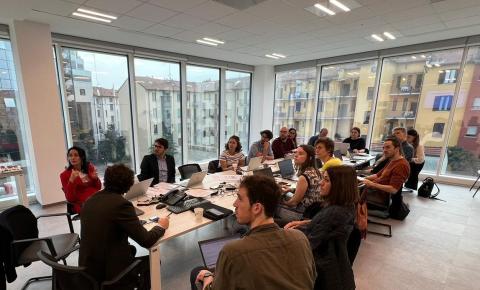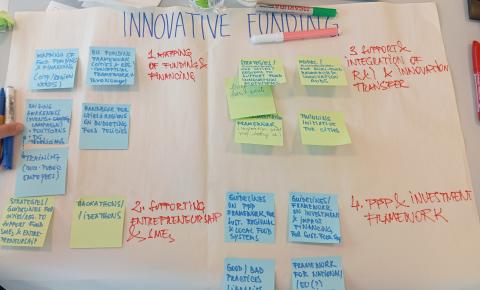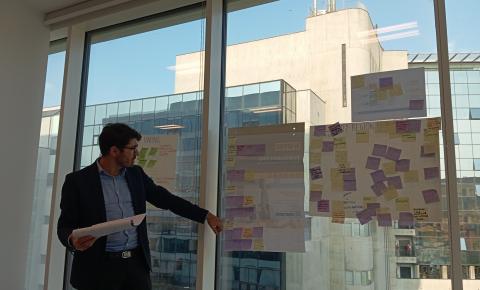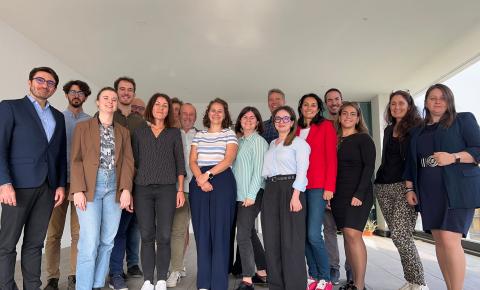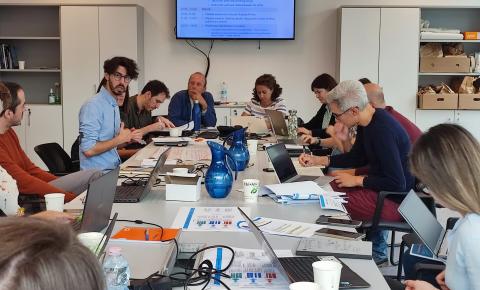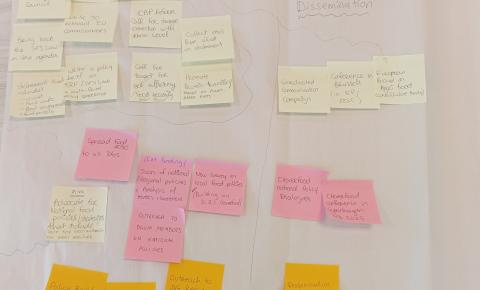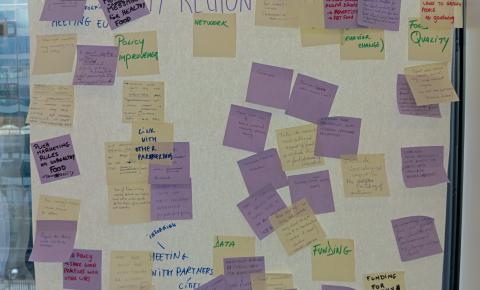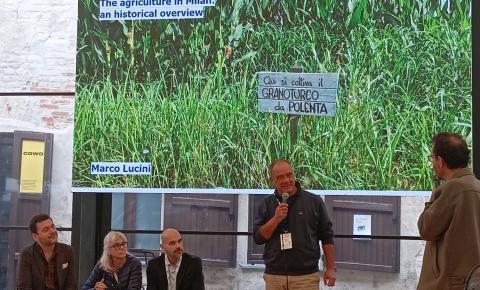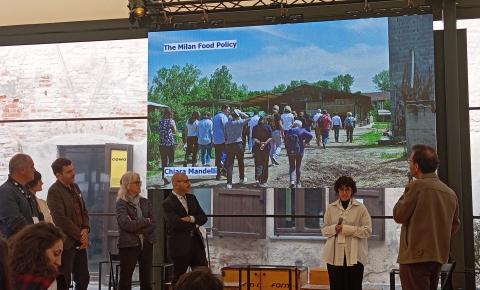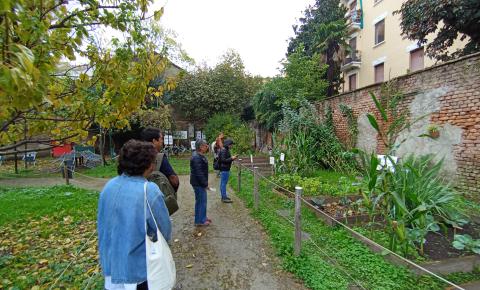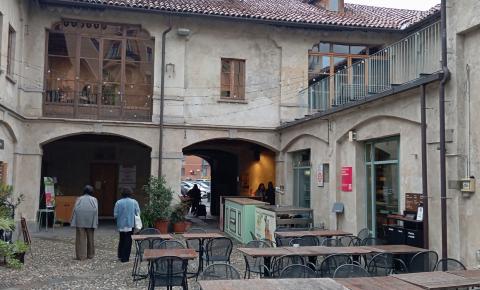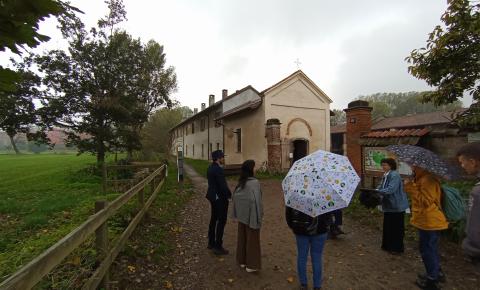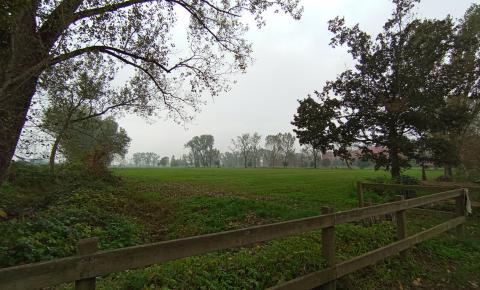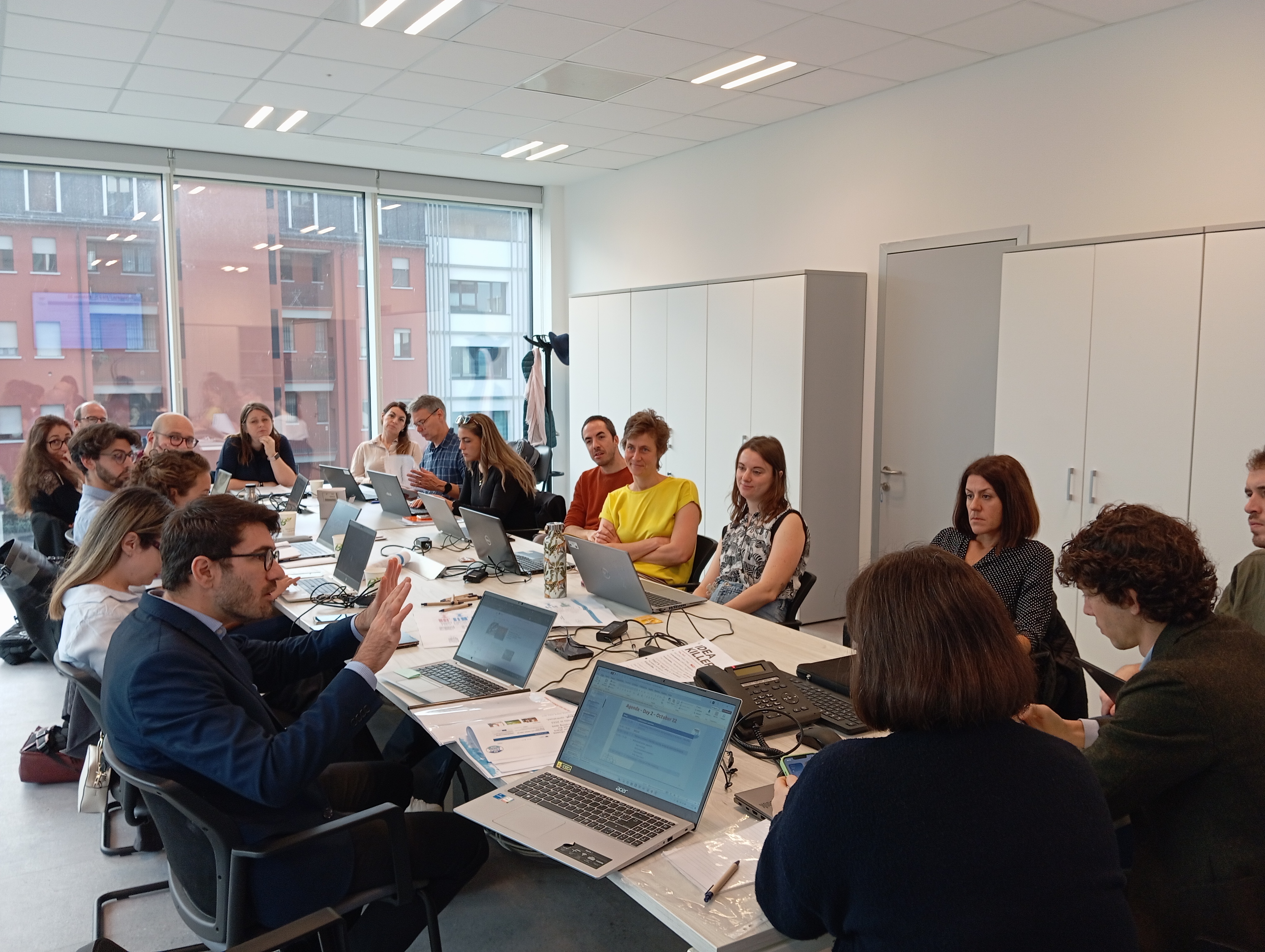
Setting the Stage for the Food Action Plan: A Key Collaborative Meeting
On 21-22 October 2024, members of the Food Thematic Partnership gathered in Milan for their third in-person meeting. The goal was to draft preliminary actions based on the key thematic areas outlined in the Food Orientation Paper.
The two-day intensive collaboration meeting was hosted by the City of Milan, co-coordinator of the Food Partnership. Key topics of discussion included food policy strategy, food democracy, food education for behavioural change, food public procurement, and innovative funding mechanisms to support food policy at the local level.
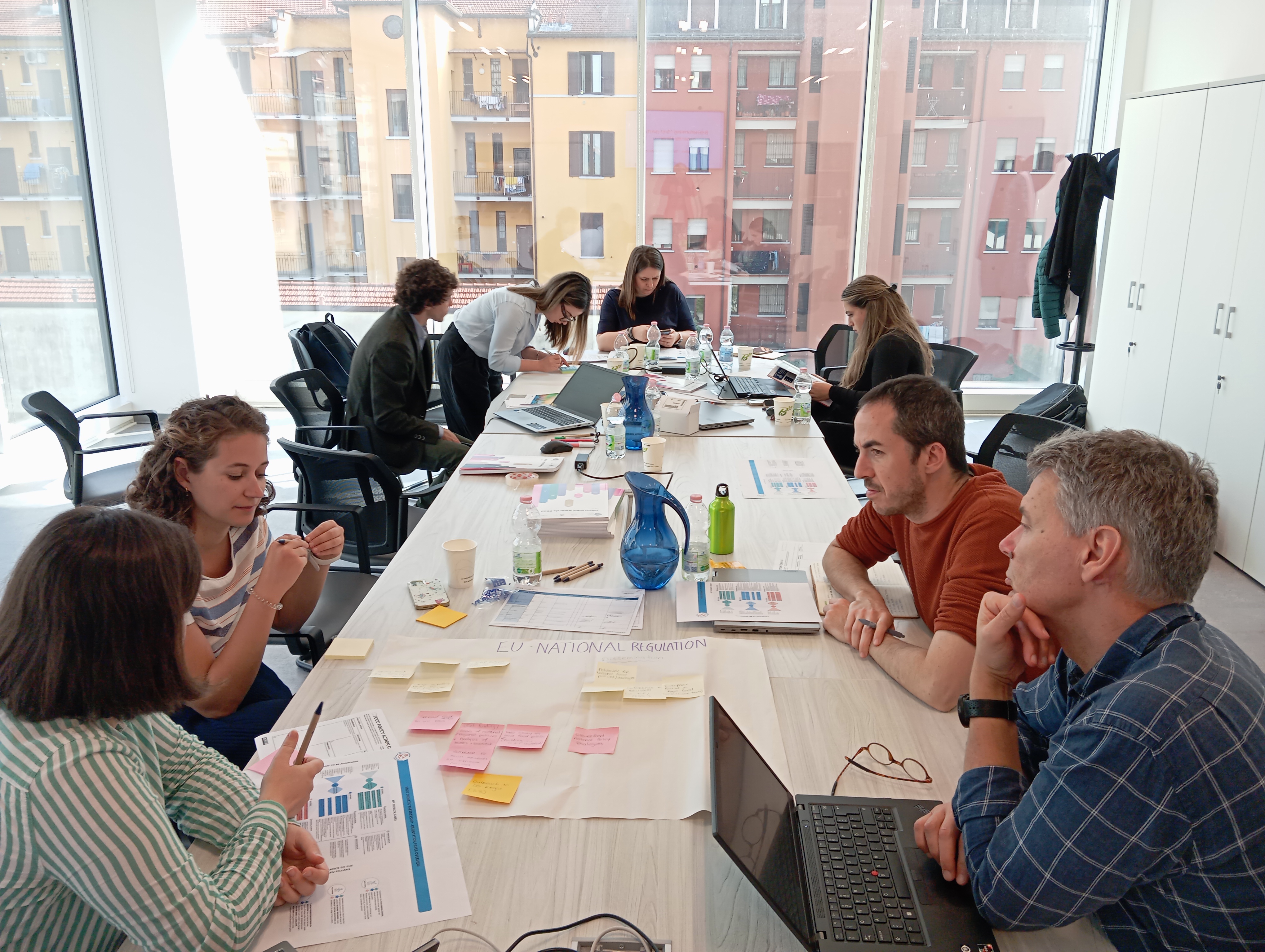
Mapping current practices, initiatives, and instruments to support food policy
On the first day, partners had the chance to share the main results from mapping existing initiatives, practices, policies, and funding mechanisms linked to the Partnership’s focus areas: Innovative Funding, the City-Region Framework, and EU/National regulation. Several practices were gathered at various levels, and partners agreed to prioritize them based on their relevance to the Partnership's goals.
Collective brainstorming sessions: identifying potential actions
The second day was opened by a speech of Filippo Gavazzeni, Head of the Milan Urban Food Policy Pact Secretariat, which underlined the importance of the Partnership’s work to create a unique European framework to support food policy at the local level.
“European Union serves as an inspiration for many other countries, and we need to lead the way in transforming food systems.”
Key insights from the working groups discussion
Following the introductory speech, partners divided into three thematic working groups. As a first step, they focused on identifying the most relevant practices, policies, and funding instruments to help define preliminary actions, while also highlighting gaps and areas needing further development or scaling up.
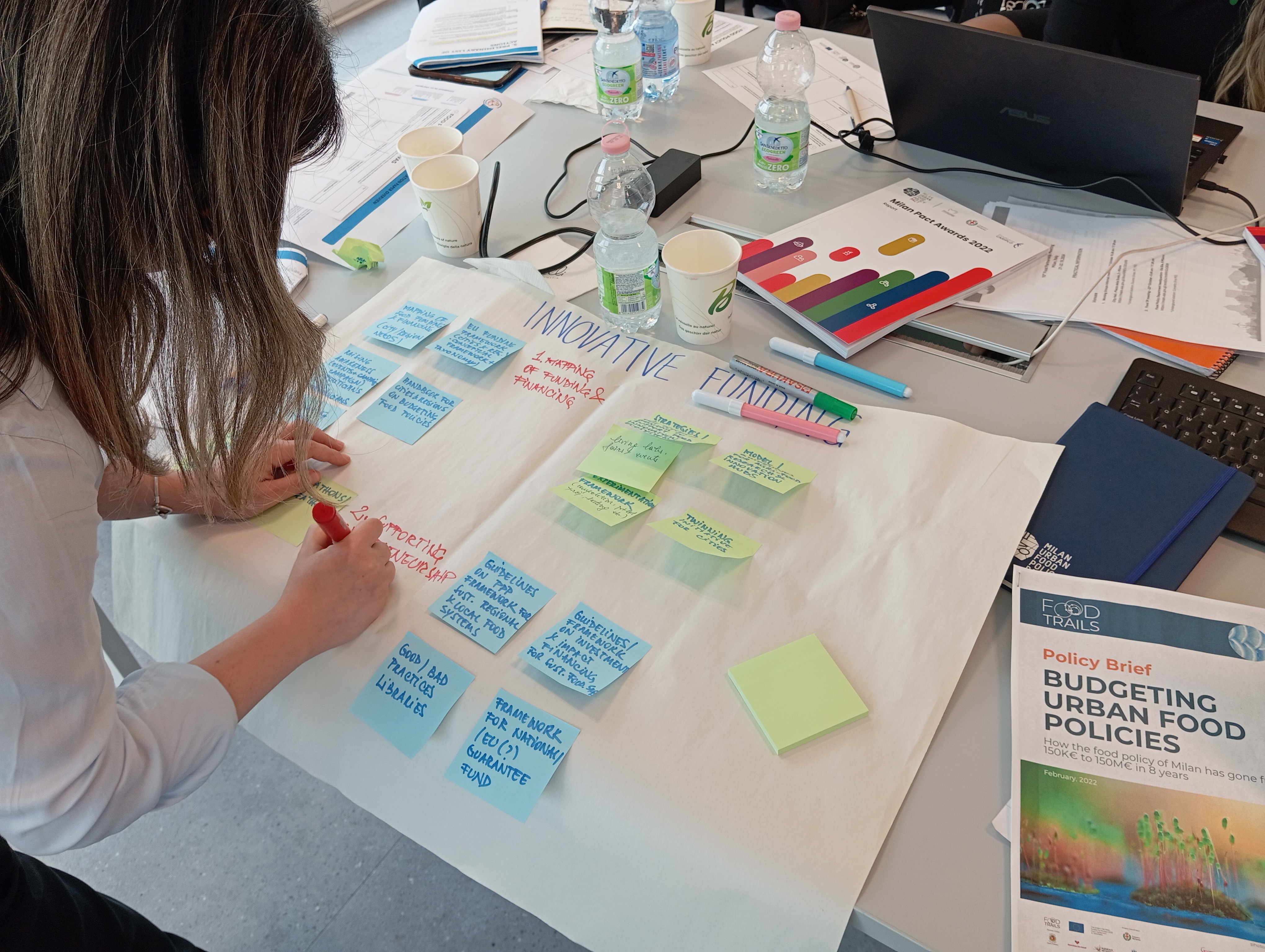
In the working group on Innovative Funding, several ideas emerged, including the creation of guidelines to provide a unified funding framework with a clear taxonomy of food-related concepts, outlining local food policy needs and priorities. Other suggestions included organizing challenges and hackathons to foster innovative projects and developing guidelines for public-private partnership framework to support regional and local food systems.
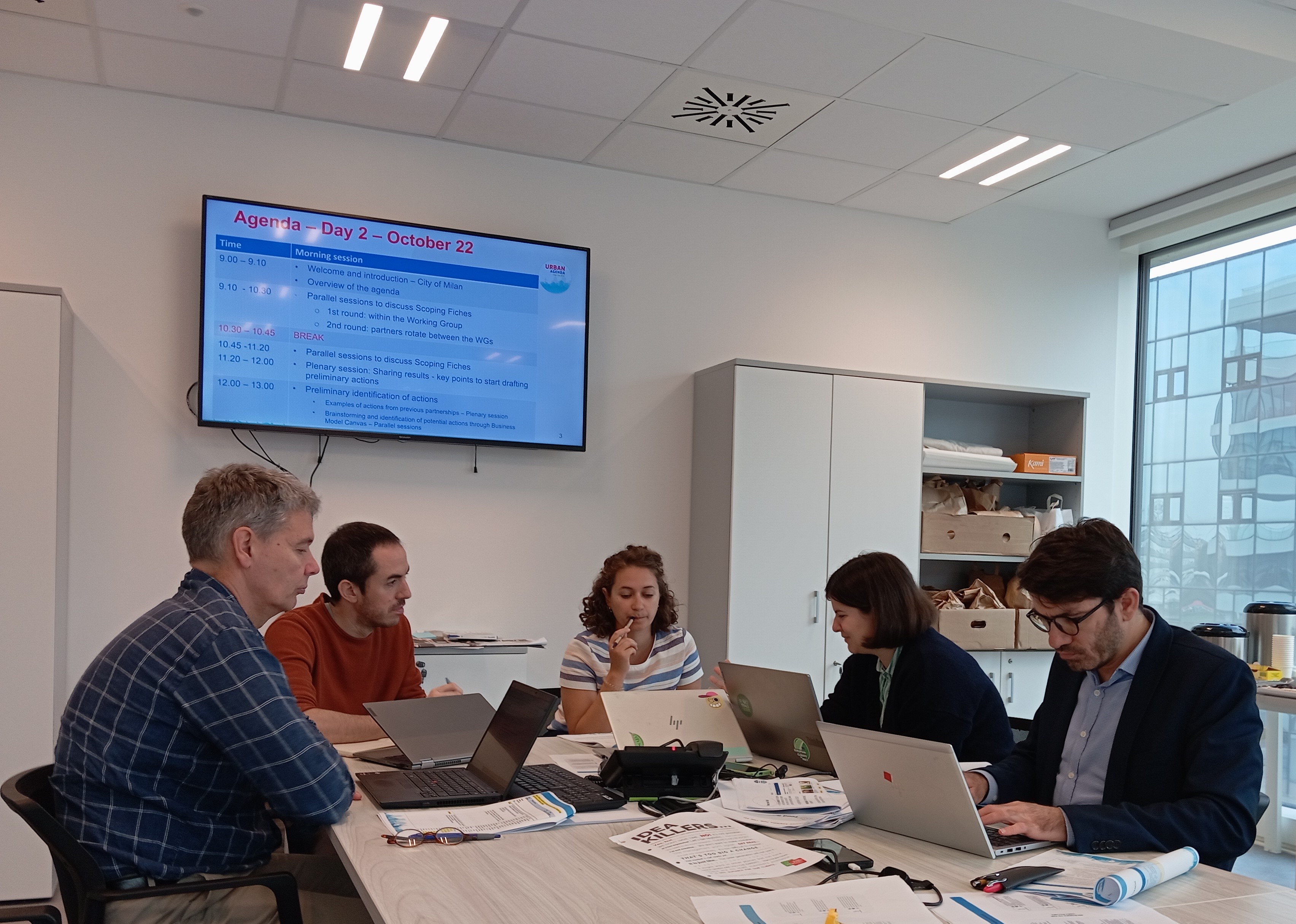
For the EU/National Regulation working group, key ideas included advocating for an integrated EU food policy through policy briefs and meetings with EU Commission representatives, pushing to bring the Sustainable Food Systems (SFS) law back to the top of the agenda, influencing the Common Agricultural Policy (CAP) to strengthen its connection to urban areas, and promoting the development of national food policies.
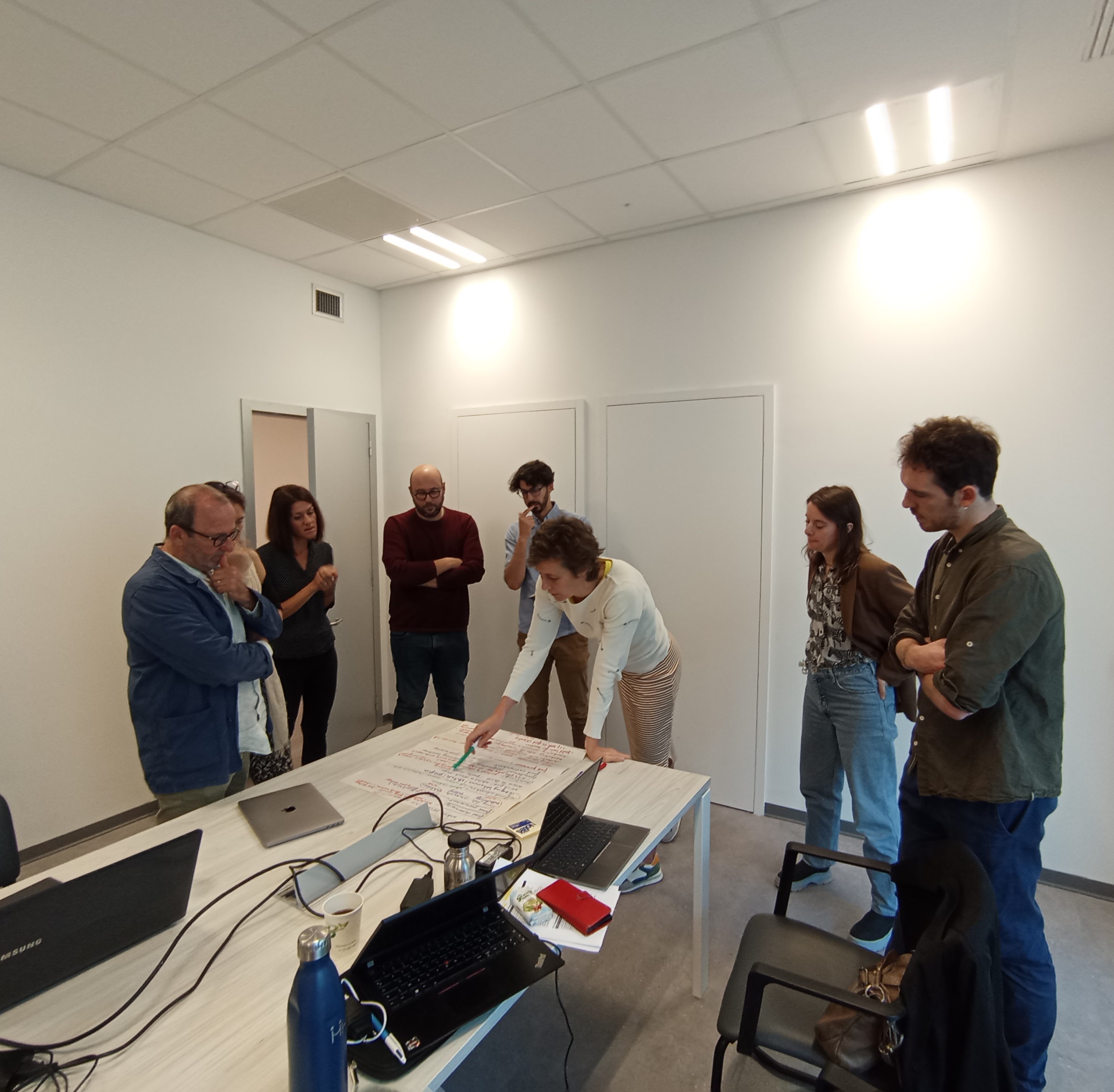
Regarding the City-Region Framework, several ideas emerged around four key topics: Food democracy - aiming to establish more food policy councils; Food procurement - setting minimum standards and simplifying procedures for cities; Food education - focusing on mandatory food education curricula across Europe and Food monitoring - creating a unified monitoring framework throughout Europe.
Lessons from a systemic approach to Food Policy
After the meeting, partners also attended the EU City Lab on “Land Strategies to Feed the City”, co-organised by URBACT and the European Urban Initiative. This provided an inspiring opportunity to gain insights into the systemic approach to food policy that the City of Milan has been implementing for several years, as well as to learn about other inspiring practices from cities like Mouans-Sartoux (FR), Baia Mare (RO), and Bergamo (IT).
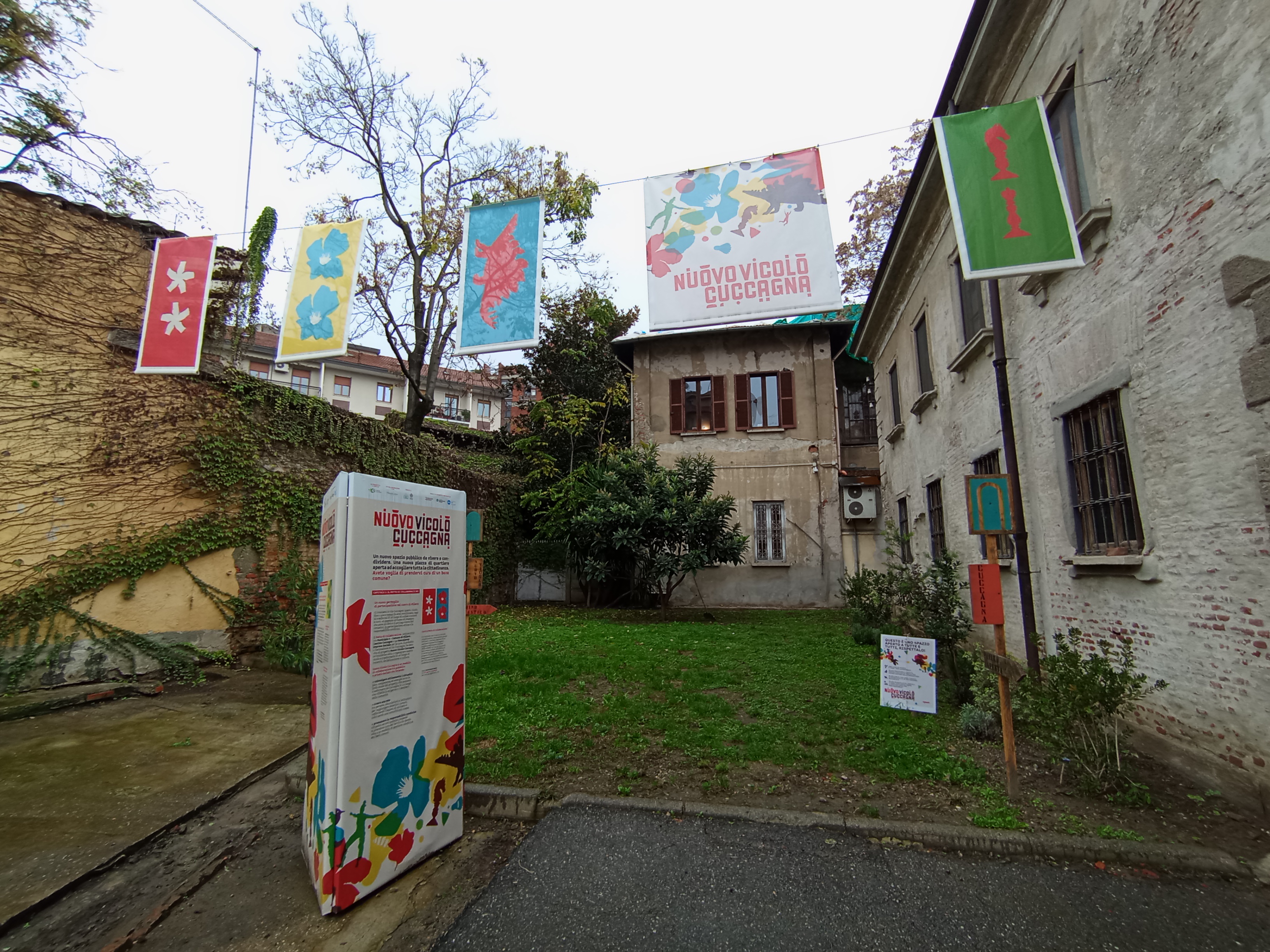
The City of Milan's systemic approach encompasses the management of over 800 hectares of farmland and a network of farmsteads distributed throughout the municipal territory. It also includes promoting farmers' markets within the city to encourage local food consumption, organizing dialogues with farmers to agree on production types, and school’s canteen procurement to promote more sustainable and healthy diets.
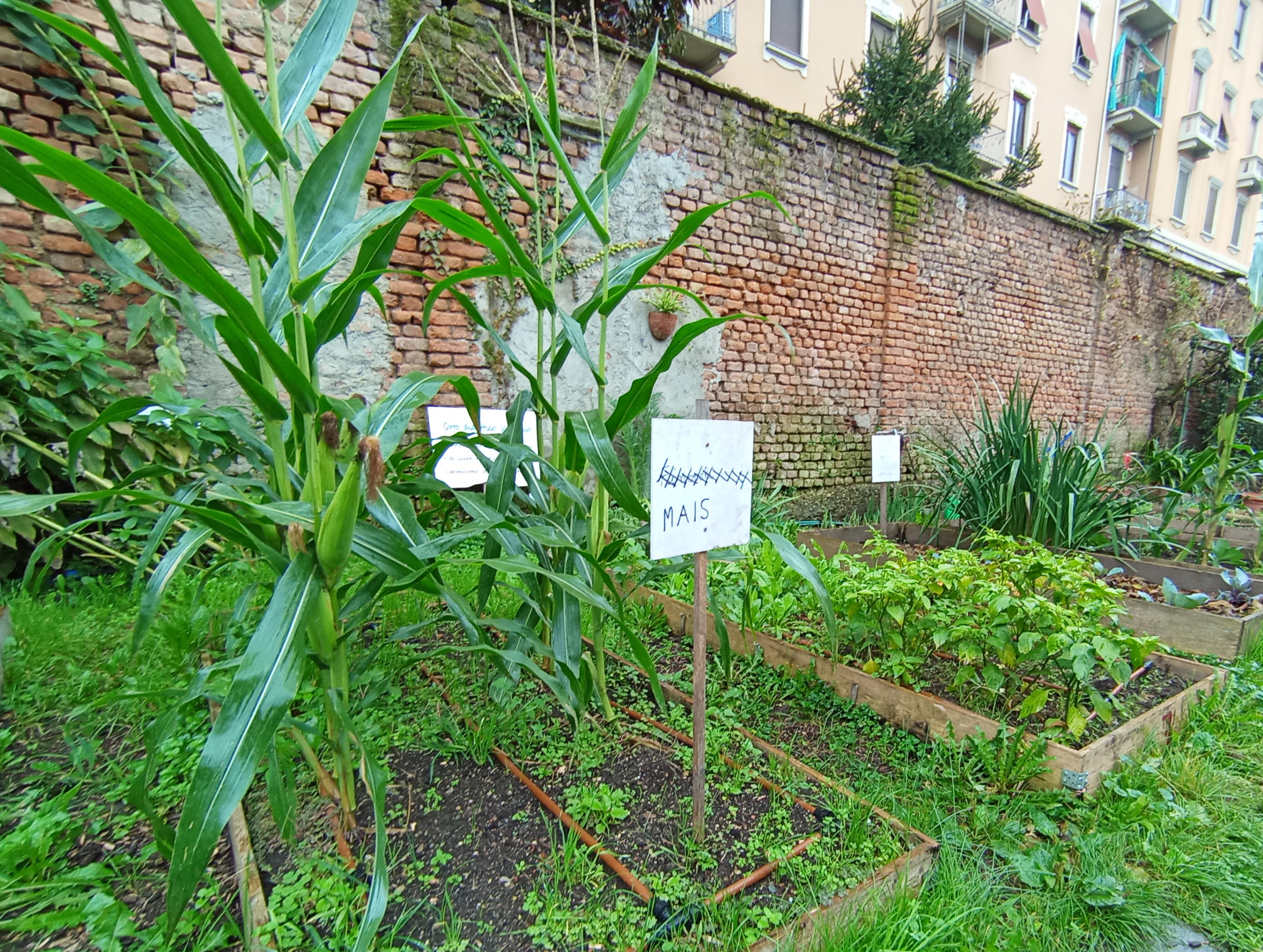
The systemic approach has fostered the creation of a network of farmers, social cooperatives and local associations that collaborate with the municipal administration. Together, they share the mission of feeding the city while preserving the natural and agricultural landscape, thereby reinforcing urban-rural linkages. Interesting examples were showcased during the study visits.
